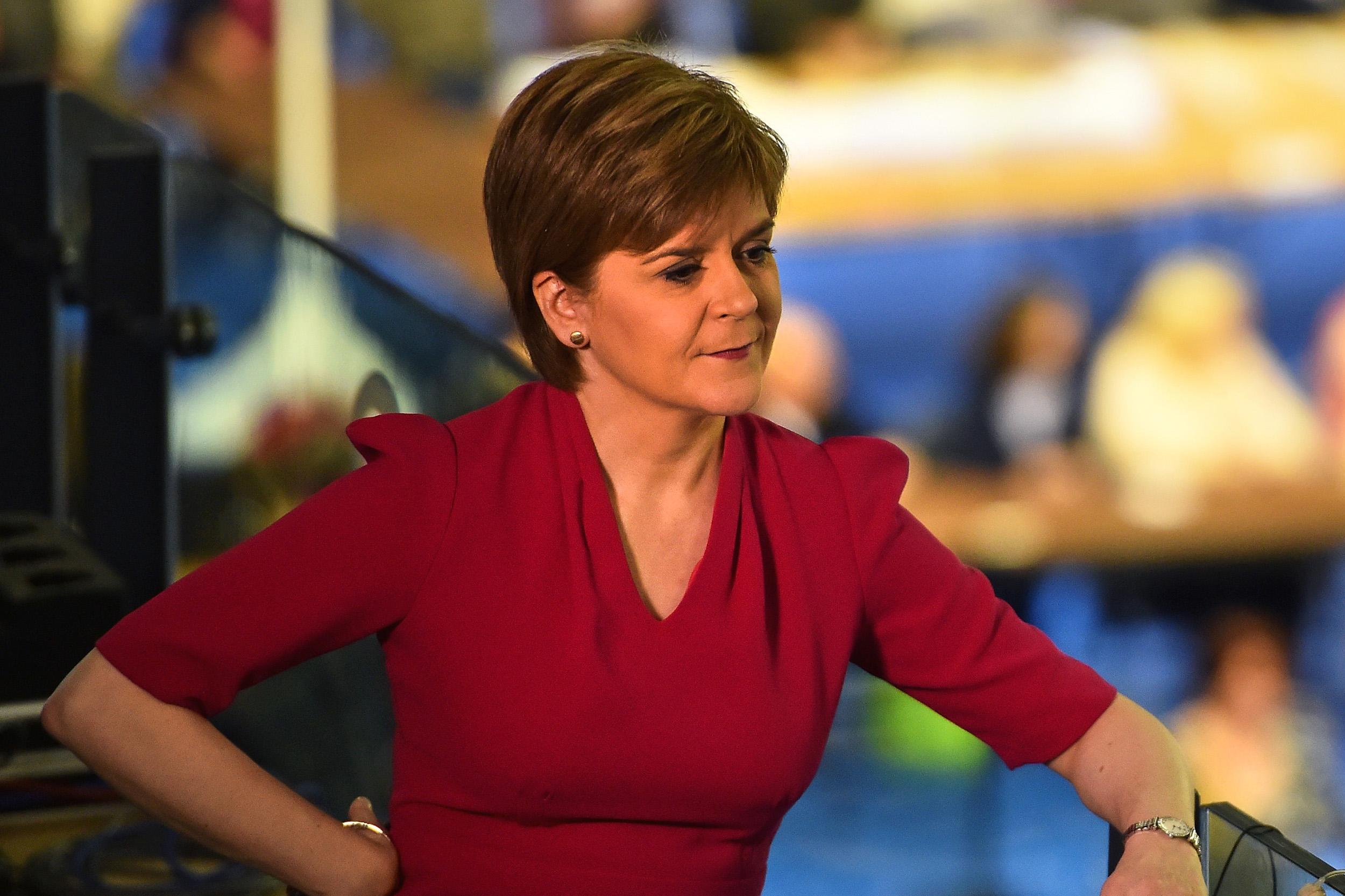This is how Brexit can be stopped in 2018
As the British public becomes increasingly wise to the damage that EU withdrawal will cause, the campaign to reverse 2016's referendum decision will gain even more momentum

In 2017, Best for Britain and campaign partners across the country backed parliamentary candidates that continue to fight for all options to be on the table for the UK’s future. We know that 6.5 million people voted tactically in the general election, and the 1 million uses of our tactical vote guide in marginal seats was hugely impactful.
Our supporters campaigned for the release of the Brexit impact assessments. They took on Russian interference in our democracy. And working with the entire movement, we pushed the meaningful vote amendment over the line on 13 December, buoying the MPs that took the brave decision to go against their whip.
The lessons of the last 12 months lead to some key insights we should note for this year. Here are my top five tips for fighting Brexit in 2018.
1. Power is local
The model of connecting constituents with their decision makers can be easily dismissed as remote clicktivism. “Oh you’ve just asked them to email their MPs…?” Damn straight we have. But that’s just the first step. Campaigning by constituency and by region is more important than ever.
Firstly, the electoral calculus of the whole country has been blown up by the quick succession of the 2015 election, the 2016 referendum and the 2017 election. MPs guarding two- and three-figure majorities in 2015 are now sitting on huge majorities (for example Rupa Huq and Tulip Siddiq in London) – though they are not sitting on their laurels.
Equally, MPs that had decent majorities in 2015 but saw those drop in 2017 (such as Conservative Theresa Villiers MP, whose 7000 majority was reduced to 353) will be looking to get back some of those 2015 voters before their majority evaporates altogether.
With tactical voting shown to have influenced 6.5 million people at the polls, the floating vote – so important in the first-past-the-post system – is now the most important of all in UK politics. What’s more, with Brexit being the only major political issue in recent memory to divide the country on anything other than party political lines, and with majorities unclear and confusing, constituents have unparalleled power and voice.
More effective campaigning by Brexit resisters has taken many people up the ladder of engagement from being clicktivists to 24/7 advocates, leaving no local stone unturned to meet, greet and press their MP on Brexit. Localised campaigning, localised messaging and local organisation will be key for the emerging campaign to fight Brexit.
2. Defend a truly meaningful vote with your life
No sooner had the cheers from the chamber died down on the night of Wednesday 13 December following the Government’s defeat by 309 votes to 305 on the meaningful vote amendment, than the Government deftly pivoted to prop up its pernicious amendment 381, seeking to set in stone the Exit Day of the UK from the EU.
A compromise was agreed by Conservative rebels, which stated that the Exit Day would be when negotiations had finished. But there is concern that the Government is again chipping away at the power of Parliament: the impression given strength by Theresa May’s repetition of her “deal or no deal” mantra before Christmas.
The main reason the Government is bandying this threat around is they are petrified of the deal going to a vote at all. Defeat in the Commons would not definitely lead to no deal – the EU has repeatedly said we have until March 2019 to decide on our exit, so there would be some time to consider our options if the Government’s deal was rejected.
What it would lead to is constitutional meltdown and possibly an election. What the Government needs to see is that each and every day there is a majority of MPs willing to vote down a bad Brexit deal – with no Brexit as a clear option for the country.
Whether you support a soft Brexit or no Brexit at all, getting no Brexit on the table as an option and pushing Parliament to a vote is the best way for our country to win. The meaningful vote needs to be defended and carried out at all cost.
3. Democracy, Parliament, Scotland, Wales and Northern Ireland are key
The spotlight Brexit has put on the weakness of the UK’s Parliament is sobering. Britain’s centuries without a constitution evaded modern scrutiny – until Brexit. The power of Parliament in this process, first established by the landmark Miller case in early 2017, will continue to be a theme into 2018.
Dominic Grieve’s amendment embedded the principle of a statute being needed to deliver Brexit. Many saw the Government’s push to set Exit Day in stone as an attempt to dismantle parliamentary primacy. The unwieldy power of our Executive – long noticed and fought against by Scotland, Wales and Northern Ireland – is now being noticed by others in England.
Meanwhile, the Scottish, Welsh and Northern Irish continue to play a critical role in the negotiations. Nicola Sturgeon could be one of those to help rescue victory from the jaws of defeat simply by doing what she does best – defending Scottish interests.

4. The Labour Party line could resolve Brexit
The Labour party’s line on Brexit is still the most important piece of the political jigsaw puzzle. But shifts will only happen if they truly come from within Labour – from their members and voters – and if the Labour leadership understands the electoral opportunity that would be presented by a change in its position on Brexit.
The 2017 general election saw tactical voting by Remain voters getting Labour over the line in myriad constituencies. The received wisdom in the country is that Labour did an excellent job of triangulating Leave and Remain voters.
The data tells a different story – that the only way Labour was able to gain seats from a Conservative party that enjoyed a 6.5 per cent increase in voters from 2015 was because of Remainers switching, including in northern seats where that tactical vote often had most impact, even in so-called ‘Leave’ constituencies.
Without a real shift in the Labour position that keeps the door open to all options – including staying in the EU – it’s possible that Labour’s support from those tactical voters will drain away: either back to other parties, to sit out an election, or perhaps to one of the plethora of new parties that are quietly organising on the fringes.
The local elections in May will be the first test of how Labour’s Brexit policy might affect electoral dynamics with an increasingly clued-up electorate.

5. Ireland, and the other 26
Before we forget, there are 27 other EU countries – not to mention the institutions of the EU itself – which have something of a role to play in the next Act of Brexit.
As Barnier said: “This is not a negotiation; it is a process.” The last few months proved the first part of his statement to be correct. The EU holds all the cards. Truth be told, they could sit on their hands and nod politely for the next 15 months and watch us slide out of view with whatever they want.
It’s the Government’s knowledge of this inherent weakness that has led the UK government to flirt so dangerously with no deal (like most under-confident individuals, the Government projects a bullyboy swagger on the surface). It’s the only scenario that could damage the EU a bit. But nowhere near as much as it would damage the UK.
True, the EU would need to recalibrate its policies and budget a little to cover countries such as The Netherlands which would be disproportionately affected by a no-deal scenario, but in reality the EU remains firmly in the driving seat.
The EU 27 also includes Ireland, and the 26 other countries have done an impressive job of lining up behind Taoiseach Varadkar as his government have point blank refused to entertain a return to a hard border between Northern Ireland and Ireland, among other issues.
The truth here is that unless Ireland is to be captured into Brexit in some sick re-run of colonial hegemony, the Northern Irish border has to be either in the Irish Sea or slicing up the island of Ireland in two. None of these options are acceptable to both parties.
The Irish question (and the lack of any answer to it) will be the crunch point that could sink Brexit. It’s in the EU’s and Ireland’s hands to decide at what point the UK needs to wake up and smell the coffee on this – sooner rather than later would be the “cruel to be kind” option that would best serve the populations of all countries concerned.
***
For all these reasons, 2018 is the year Brexit could come off the rails, and the British public could opt for a different path, to stay and lead in Europe.
The Conservative Government is making a few bets right now. It is betting that Parliament will be scared into wanting any deal at all over no deal. It is betting that Tory rebels want a Conservative majority in the House of Commons more than they want to overcome Brexit. It is betting that ultimately the more extreme Brexiters want to deliver Brexit at any cost – even if that cost is a soft Brexit.
Each of these bets is likely to unravel over time. But the biggest bet of all is being placed on the unity and economic future of the UK, both of which are under huge threat.
British people are savvy, and I have no doubt that while the Government loses its head the wisdom of the people will continue to shift, and save us from the most calamitous, elite-made act of self-harm in modern political history.
2018 is the year Brexit can be stopped – if the will of the people so wishes.
Eloise Todd is CEO of the Best for Britain campaign
Join our commenting forum
Join thought-provoking conversations, follow other Independent readers and see their replies
Comments
Bookmark popover
Removed from bookmarks